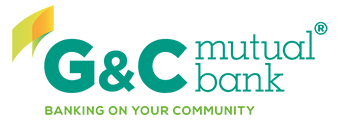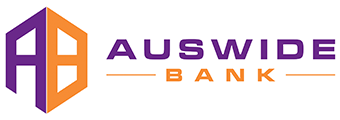Fact Checked
Home Compare Savings Accounts Pensioner Savings Accounts
Top Pensioner Savings Account Rates
There are savings and bank accounts for people under 30, and there are savings and bank accounts designed specifically for seniors. If you’re over 55 years old, or you’re receiving a government pension, opening a pensioner savings account may be an option to consider.
| Bank | Savings Account | Base Interest Rate | Max Interest Rate | Total Interest Earned | Introductory Term | Minimum Amount | Maximum Amount | Linked Account Required | Minimum Monthly Deposit | Minimum Opening Deposit | Account Keeping Fee | ATM Access | Joint Application | Tags | Features | Link | Compare | Promoted Product | Disclosure |
|---|---|---|---|---|---|---|---|---|---|---|---|---|---|---|---|---|---|---|---|
2.90% p.a. | 2.90% p.a. | $588 | – | $0 | $99,999,999 | – | $0 | $0 | |||||||||||
3.50% p.a. | 3.50% p.a. | $711 | – | $50,000 | $99,999,999 | – | $0 | $5 | |||||||||||
2.35% p.a. | 2.35% p.a. | $475 | – | $250,000 | $99,999,999 | – | $0 | $0 | |||||||||||
2.00% p.a. | 2.00% p.a. | $404 | – | $50,000 | $99,999,999 | – | $0 | $0 | |||||||||||
1.85% p.a. | 1.85% p.a. | $373 | – | $50,000 | $99,999,999 | – | $0 | $0 | |||||||||||
1.40% p.a. | 1.40% p.a. | $282 | – | $10,000 | $49,999 | – | $0 | $0 | |||||||||||
1.40% p.a. | 1.40% p.a. | $282 | – | $50,000 | $99,999,999 | – | $0 | $0 | |||||||||||
1.80% p.a. | 1.80% p.a. | $363 | – | $50,000 | $99,999,999 | – | $1 | $0 | |||||||||||
1.30% p.a. | 1.30% p.a. | $262 | – | $5,000 | $49,999 | – | $1 | $0 | |||||||||||
1.00% p.a. | 1.00% p.a. | $201 | – | $5,000 | $49,999 | – | $0 | $0 |
All products with a link to a product provider’s website have a commercial marketing relationship between us and these providers. These products may appear prominently and first within the search tables regardless of their attributes and may include products marked as promoted, featured or sponsored. The link to a product provider’s website will allow you to get more information or apply for the product. By de-selecting “Show online partners only” additional non-commercialised products may be displayed and re-sorted at the top of the table. For more information on how we’ve selected these “Sponsored”, “Featured” and “Promoted” products, the products we compare, how we make money, and other important information about our service, please click here. Rates correct as of . View disclaimer.
While pensioner bank accounts can often be quite similar to standard bank accounts, some banks and credit unions may offer a few additional benefits such as waiving fees or other perks for people over a certain age.
As you can see from the list above, many banks and credit unions offer accounts targeted at pensioners or seniors who may be looking for banking options to meet their specific needs.
There are a few different types of accounts pensioners or seniors may be interested in, but here we're referring to pensioners/seniors' savings accounts. (See at the bottom of this article for other accounts that may be confused for these.)
What is a pensioner savings account?
Pensioner savings accounts are designed for retired people aged over 55 or others receiving government pensions such as disability support payments, veteran's or carer's pensions.
Generally, pensioner savings accounts are designed to be simple and easy to use. They tend to offer the facilities of a standard transaction account but unlike many transaction accounts, will also pay interest on the balance in the account.
What's the difference between a pensioner account and an everyday account?
Combined account
A key difference between a pensioner savings accounts and your everyday, run-of-the-mill savings account is that pension accounts are generally a 'one account fits all'.
Unlike most savings accounts where you often need to open a linked transaction account to access your money, pensioner accounts generally allow unlimited access to your cash via a linked debit card and bill pay, the same as many standard transaction accounts, but will also pay interest (unlike many transaction accounts).
Most banks and other deposit-taking institutions require you to have separate savings and spending accounts, with a debit card attached only to your spending account.
Different interest calculation
The interest rate structure of a pensioner bank account may also be different. Many pensioner accounts will offer what's called a 'tiered' structure for paying interest.
This means interest is paid according to the balance in the account. For example, balances of less than $10,000 might pay 0.5% p.a., with the interest rate climbing along with the balance.
Essentially, this means the more money sitting in your account, the more interest you'll earn.
Lower interest rate
It's important to note though that pensioner bank accounts can often come with considerably lower interest rates than a standard savings account.
This needs to be considered if you're considering whether to open a standard savings account or a pensioner account.
Who offers pensioner savings accounts?
There are a number of banks that offer pensioner savings accounts, including the big four banks.
Generally, monthly account-keeping fees are waived but many may charge other fees depending on the services used. Each bank will set out its own features and terms and conditions.
Many smaller banks also offer specialist pensioner accounts that may offer more competitive interest rates and/or other add-on features.
You can use the comparison tools on the table above to compare the various accounts or ask your bank what it offers in terms of pensioner/senior accounts and other products and services.
Eligibility
Generally, you'll need to be an Australian resident over 55 and retired, or receiving a government pension. You'll likely need to provide a pension or Centrelink number and/or other ID to prove this.
Pros and cons of pensioner savings accounts
There are some considerations before opening a savings account specifically tailored to seniors or pensioners.
Pros
-
Flexibility: You generally don't need to stress about transferring money from one account to another or making sure you have enough money in your transaction account for bill payments to be deducted automatically. All your money can be kept in one place and is easily accessible, which can make life easier.
-
Waived fees: Many banks will waive any account keeping fees if you're opening a pensioner or seniors savings account. Be sure to check if this applies.
-
Earn interest: If you don't want the hassle of constantly setting up term deposits to earn interest, having your money sitting in a pensioner savings account can be helpful. While you may not be earning as much interest as you could find elsewhere on the market, you also won't need to worry about moving money around or keeping track of term deposit end dates.
Cons
-
Less choice: While the big four banks and a number of other banks offer pensioner savings accounts (or pensioner-geared products), not every bank does. You may find your current bank doesn't offer specialist seniors' products. Be sure to do your research to find a product suitable for you, or if sticking to a regular savings account might be better for you overall.
-
Lower interest rates: Pensioner savings accounts generally pay lower interest rates than standard savings accounts, even at the same banks. Make sure you check whether you would be better off keeping your savings in a standard or high interest savings account with a traditional linked transaction account to pay your bills from.
-
No bonus interest: Due to the nature of pensioner bank accounts, they don't typically offer bonus interest. Bonus interest can be earned on certain bank accounts on top of a base rate depending on whether the account holder meets certain conditions.
Other senior bank accounts
Retirement savings accounts
Pensioner or seniors savings accounts shouldn't be confused with retirement savings accounts. These are specialist accounts where account holders can contribute funds that can't be accessed until they retire, much like superannuation.
These types of accounts are guaranteed, which means account holders can't lose the money they put in there, but the returns are considerably lower than what superannuation funds can achieve.
Retirement savings accounts are offered by only three banks (as at 2024) while some banks are still maintaining past retirement savings accounts but are not opening them to new customers.
To make things a little more confusing, some banks may market some seniors savings accounts as 'retirement accounts'.
Make sure you understand what you are signing up for before opening any account.
Retirement income accounts
Superannuation funds may also offer 'retirement income accounts' when people choose to access their super through account-based pensions.
These accounts are set up through a superannuation accumulation account when a person has reached preservation age (between 55 and 60 years old, depending on when they were born).
Such accounts are a means of receiving regular - or lump sum - payments from the account holder's superannuation balance.
These accounts are also different to pensioner or senior savings accounts offered by some retail banks.
On this page
Looking for a better
savings account rate?
Compare high-rate savings accounts
from leading Australian banks.
More Savings Accounts Options
Editorial Promise
Savings.com.au follows a strict editorial policy, so you can trust that we’re putting your interests first. All of our content is authored by highly qualified professionals and edited by subject matter experts who ensure everything we publish is objective, accurate and trustworthy.
 Denise Raward
Denise RawardSenior Finance Journalist
Denise Raward is a senior journalist with an interest in macroeconomics, property, and personal finances. She has worked extensively across mainstream media organisations and lectured at Queensland University of Technology, Griffith University, and Bond University. She holds a Bachelor of Business - Communication, a Master of Arts, and RG 146 financial certification in Generic Knowledge, Securities, and Regulation. Joining Savings.com.au in January 2024, Denise strives to deliver financial information in everyday language to help Australians to better understand how to manage their own – and their families' – ongoing financial health.
© 2025 Savings.com.au · AFSL and Australian Credit License Number 515843
The entire market was not considered in selecting the above products. Rather, a cut-down portion of the market has been considered. Some providers' products may not be available in all states. To be considered, the product and rate must be clearly published on the product provider's web site. Savings.com.au, InfoChoice.com.au, YourMortgage.com.au and YourInvestmentPropertyMag.com.au are part of the InfoChoice Group. In the interests of full disclosure, the InfoChoice Group are associated with the Firstmac Group. Read about how InfoChoice Group manages potential conflicts of interest, along how we get paid.
Savings.com.au Pty Ltd ACN 161 358 363 operates as an Australian Financial Services Licensee and an Australian Credit Licensee Number 515843. Savings.com.au is a general information provider and in giving you general product information, Savings.com.au is not making any suggestion or recommendation about any particular product and all market products may not be considered. If you decide to apply for a credit product listed on Savings.com.au, you will deal directly with a credit provider, and not with Savings.com.au. Rates and product information should be confirmed with the relevant credit provider. For more information, read Savings.com.au's Financial Services and Credit Guide (FSCG). The information provided constitutes information which is general in nature and has not taken into account any of your personal objectives, financial situation, or needs. Savings.com.au may receive a fee for products displayed.
Explore the InfoChoice Group network: InfoChoice · Your Mortgage · Your Investment Property
Our company, Savings.com.au, has obtained accreditation as a data recipient for the Consumer Data Right (CDR). You can view our CDR policy by clicking on this link.
Important information
Savings.com.au provides general information and comparison services to help you make informed financial decisions. We do not cover every product or provider in the market. Our service is free to you because we receive compensation from product providers for sponsored placements, advertisements, and referrals. Importantly, these commercial relationships do not influence our editorial integrity.
For more detailed information, please refer to our How We Get Paid, Managing Conflicts of Interest, and Editorial Guidelines pages.
At Savings.com.au, we are passionate about helping Australians make informed financial decisions. Our dedicated editorial team works tirelessly to provide you with accurate, relevant, and unbiased information. We pride ourselves on maintaining a strict separation between our editorial and commercial teams, ensuring that the content you read is based purely on merit and not influenced by commercial interests.
Learn more about our commitment to editorial integrity in our Editorial Guidelines.
Our service is free for you, thanks to support from our partners through sponsored placements, ads, and referrals. We earn compensation by promoting products, referring you, or when you click on a product link. You might also see ads in emails, sponsored content, or directly on our site.
For more details, see How We Get Paid.
We strive to cover a broad range of products, providers, and services; however, we do not cover the entire market. Products in our comparison tables are sorted based on various factors, including product features, interest rates, fees, popularity, and commercial arrangements.
Some products will be marked as promoted, featured or sponsored and may appear prominently in the tables regardless of their attributes.
Additionally, certain products may present forms designed to refer you to associated companies (e.g. our mortgage broker partner) who may be able to assist you with products from the brand you selected. We may receive a fee for this referral.
You can customise your search using our sorting and filtering tools to prioritise what matters most to you, although we do not compare all features and some results associated with commercial arrangements may still appear.
For more details, visit How We Get Paid and Managing Conflicts of Interest.
For home loans, the base criteria include a $500,000 loan amount over 30 years. For car loans, the base criteria include a $30,000 loan over 5 years. For personal loans, the base criteria include a $20,000 loan over 5 years. These rates are only examples and may not include all fees and charges.
*The Comparison rate is based on a $150,000 loan over 25 years. Warning: this comparison rate is true only for this example and may not include all fees and charges. Different terms, fees or other loan amounts might result in a different comparison rate.
Monthly repayment figures are estimates that exclude fees. These estimates are based on the advertised rates for the specified term and loan amount. Actual repayments will depend on your circumstances and interest rate changes.
Monthly repayments, once the base criteria are altered by the user, will be based on the selected products’ advertised rates and determined by the loan amount, repayment type, loan term and LVR as input by the user/you.
Savings.com.au is proudly part of the InfoChoice Group, which includes InfoChoice.com.au, YourMortgage.com.au, YourInvestmentPropertyMag.com.au, and PerformanceDrive.com.au. The InfoChoice Group is associated with the Firstmac Group.
We may include products and services from loans.com.au, CarLoans.com.au, OnlineAuto.com.au, and YourMortgageBroker Pty Ltd, all associated with the Firstmac Group. Importantly, these brands are treated like any other commercial partner.
Learn more about how we manage conflicts of interest.
The information provided by Savings.com.au is general in nature and does not take into account your personal objectives, financial situation, or needs. We recommend seeking independent financial advice before making any financial decisions. Before acquiring any financial product, obtain and read the relevant Product Disclosure Statement (PDS), Target Market Determination (TMD), and any other offer documents.
Rates and product information should be confirmed with the relevant credit provider. For more information, read Savings.com.au’s Financial Services and Credit Guide (FSCG).
Get rate alerts
Stay up to date with the latest rate movements across home loans, term deposits, savings accounts and more.
By subscribing you agree to our privacy policy.
Save Smarter
Join thousands of Aussies getting smarter with personal finance news, guides, expert insights and more in our regular roundup email.
By subscribing you agree to our privacy policy.
Send me the pod
Never miss an ep! Receive episode alerts plus special invites to have your questions or savings tips read out on the show.
By subscribing you agree to our privacy policy.







